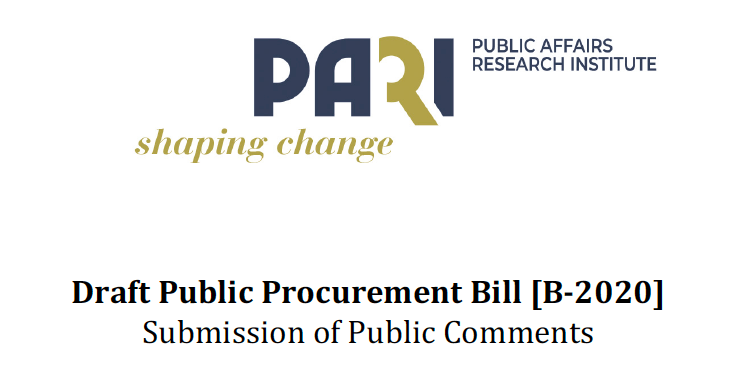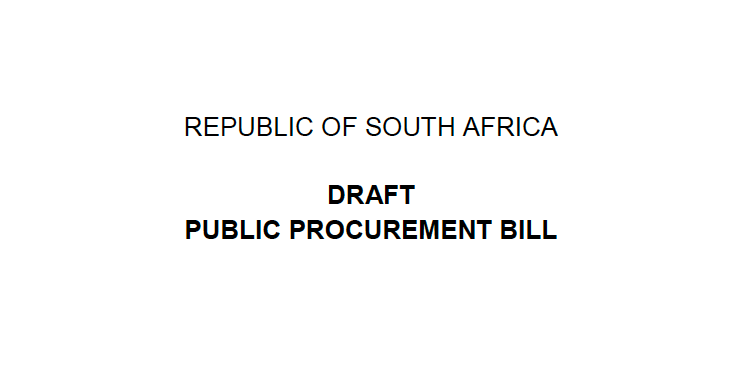PARI’s state reform programme is centrally focused on the relationship between politics and the state administration, it seeks to reduce the influence of corruption and patronage on South African politics, and to develop a public administration that better serves its democratic mandate. This programme provides practical, evidence-based recommendations for reforms in key regulatory and administrative institutions and sectors.
One such key area is public procurement reform. In South Africa, public procurement is a significant feature of state operations and of allocative patterns in the broader economy. In 2017, for instance, South African Reserve Bank statistics suggest that government channelled R967-billion through public procurement. This was around 30 percent more than the public sector spent on employee compensation. Public procurement accounted for 19.5 percent of GDP. At this scale, public procurement is fundamental to government’s ability to achieve its goals. It is important to economic growth, industrial development, and to the provision of opportunities for upward mobility to categories of previously disadvantaged people.
South African public procurement also, unfortunately, suffers from a series of widely recognised problems. It has descended into a veritable crisis of non-compliance, corruption, fruitless and wasteful expenditure, and a widespread operational inability to secure the right goods, services and infrastructure, at the right price, in the right place, at the right time.
In a 2014 publication, PARI argued that South Africa’s state had become a ‘contract state’, where state capacity was predicated upon the ability of the state to tap into and manage, through contractual relations, private sector capacities and where corruption and clientelism developed largely around the weaknesses of this ‘contract state’. In its more recent work, PARI’s position paper on public procurement, which is contained in Part B of this submission, argues for reforms to enable the state to play its intended role in achieving its democratic mandate and supporting economic and social development. It proposes, among other adjustments, a reorientation of regulatory form to facilitate good purchasing practice and black economic empowerment, while strengthening mechanisms of contract management and enforcement, including through an innovative mechanism to empower and incentivise whistleblowing and the recovery of civil damages suffered by the state due to fraudulent procurement practices.
In view of its work in the area of public procurement reform, PARI welcomes the opportunity to make submissions on the draft Public Procurement Bill [B – 2020] (the Bill).



